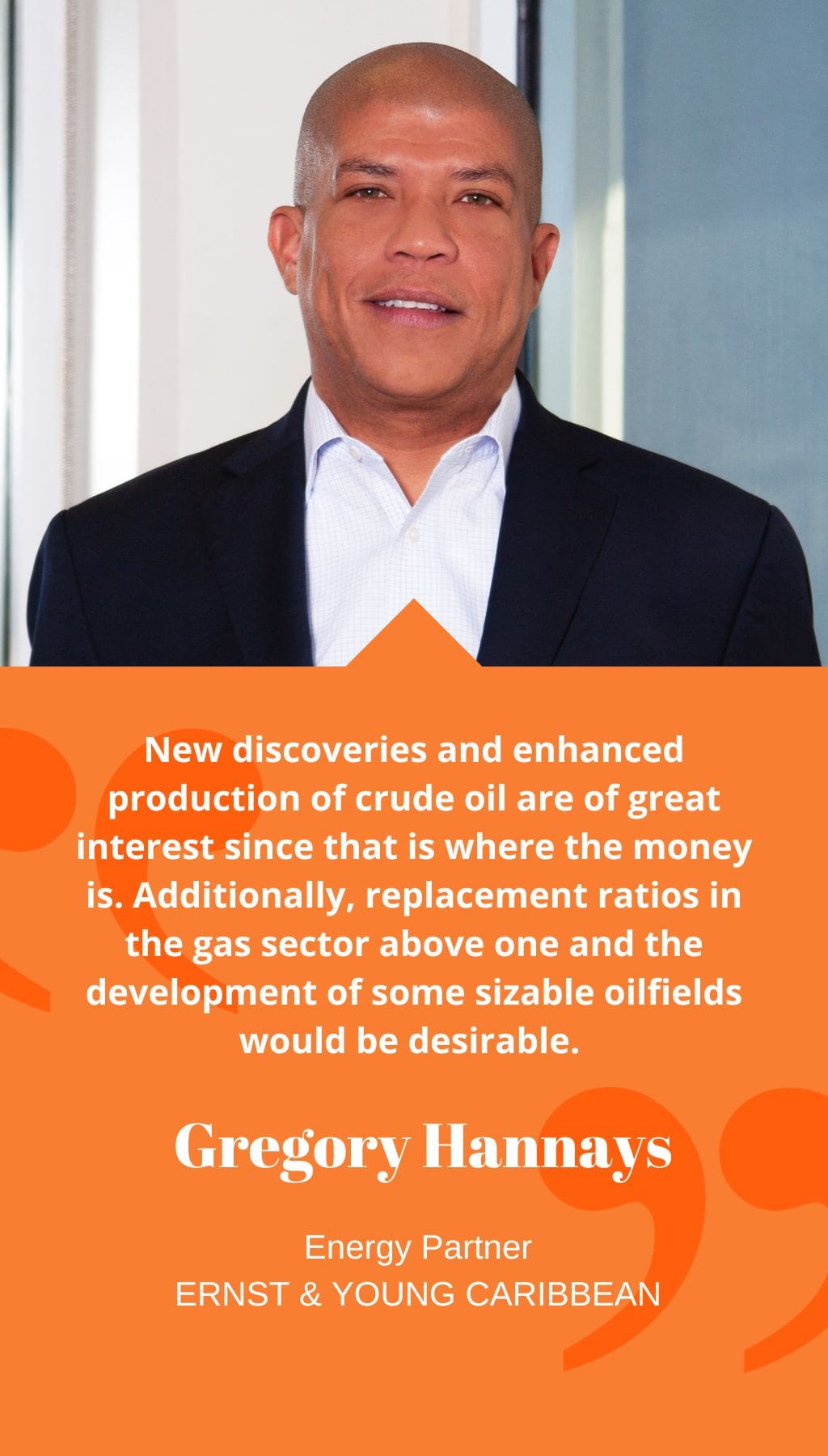
- Trinidad & Tobago | 19 April 2013

Could you give us a brief overview of Ernst & Young in the Caribbean, the services it provides to the oil and gas sector in Trinidad and Tobago, and the percentage of your revenue that comes from this sector?
Ernst & Young Caribbean (EYC) is a fully integrated professional services firm that operates within the Caribbean with offices in Trinidad and Tobago (T&T), Barbados, Jamaica, Curaçao, and Aruba. With over 500 employees working across the region, EYC provides financial statement audits, corporate tax advisory and compliance, procurement and control reviews, risk management, process improvement, fraud investigation, raising capital, valuations, and due diligence exercises to the energy sector in Trinidad and Tobago. EYC has about 150 employees in its Trinidad office. Approximately 30% of EYC’s tax revenue is directly derived from the energy sector in T&T.
Do you think the government has recognized that Trinidad’s competitiveness has diminished due to the regime? Is the latest budget a step in the right direction?
The outlook for the sector is mixed. While the upstream oil and gas regime is one factor affecting T&T’s overall competitiveness, it is not the only one. The current government has learned this lesson the hard way. They have identified natural gas production shortages (due to maintenance activity and mature fields) as a problem, along with low replacement ratios. The natural gas curtailment of the downstream sector has adversely impacted petrochemical facilities’ operations, leading to lower government revenue. The incentives proposed in the 2012/2013 National Budget Presentation in October 2012 are steps in the right direction, but these are only baby steps.
It is widely accepted that the downstream sector in Trinidad and Tobago is a world-class model, but the factors contributing to its success have long changed. The hallmarks of the energy sector in T&T (cheap gas and proximity to key markets) are no longer advantages found exclusively in Trinidad and Tobago. Therefore, the industry must reinvent itself to remain relevant. The increasing prominence of the Far East markets, cheap shale gas in the US available at spot prices and delinked from commodities prices, and the removal of tax concessions in Trinidad and Tobago have significantly reduced T&T’s attractiveness to downstream energy capital. The government must rethink its policies to ensure that the gas model remains relevant on the global stage.
Do you think the current model with the National Gas Company (NGC) acting as a middleman between the upstream and downstream sectors will continue to be viable as the market evolves?
At present, the NGC is negotiating prices for downstream projects. In the US, natural gas can be purchased for spot prices, but in T&T, which was historically a cheap jurisdiction for gas, you cannot. Upstream producers claim that gas costs are no longer cheap. The NGC ties the gas price not only to their acquisition costs but also to the underlying commodity price. When natural gas prices are linked to the commodity, the gas price is always above what it would be if it were bought at spot prices, such as in the US. This is a good model for the NGC and has worked well in the past, but the dynamics have changed. The question that needs to be asked is whether this model is sustainable.
Where do you hope to see the industry in the next few years?
New discoveries and enhanced production of crude oil are of great interest since that is where the money is. Additionally, replacement ratios in the gas sector above one and the development of some sizable oilfields would be desirable. Given that Guyana is surrounded by Venezuela, Suriname, French Guyana, and Trinidad, it would be interesting to see their oil and gas sector develop as well. Our service providers have a lot of potential to export their expertise within the region.














